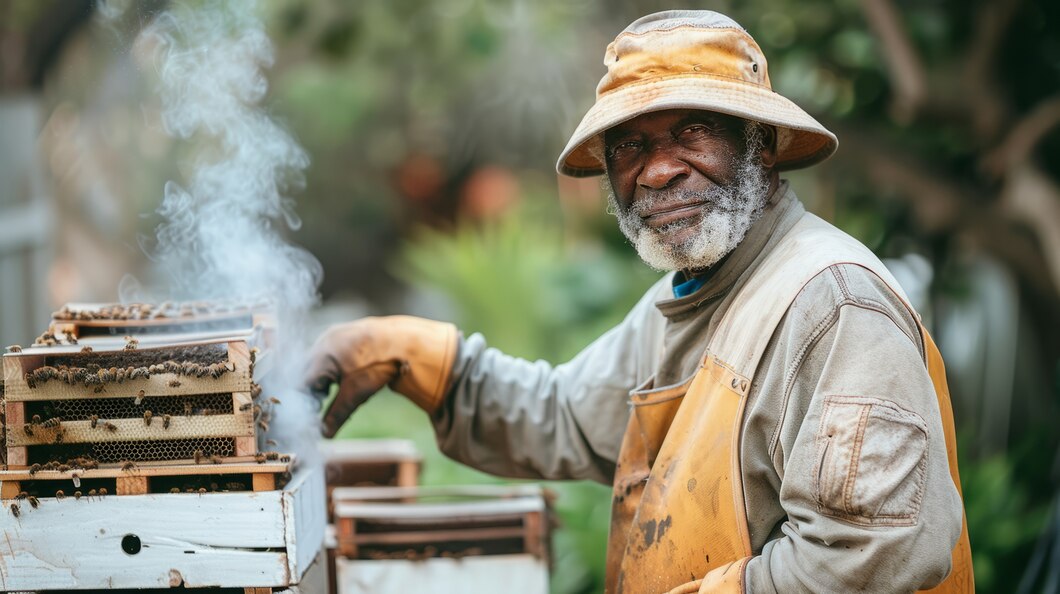Father Grant, a distinguished figure in the world of beekeeping, was an iconic presence whose passion for the craft and commitment to education left a lasting impact on the Northwest Bee-Keepers Association (NWBKA) and the broader beekeeping community. His work helped shape modern beekeeping practices and inspired countless individuals to take up the craft, appreciate the importance of bees, and understand the critical role they play in our ecosystems. This article explores the legacy of Father Grant, highlighting his contributions to beekeeping, his role in NWBKA, and his broader influence on the field.
Early Life and Introduction to Beekeeping
Father Grant’s journey into the world of beekeeping began with a deep connection to nature. As a child, he often found solace in the outdoors, observing the natural world and the creatures that inhabited it. His love for nature eventually led him to discover beekeeping, a craft that combines science, patience, and a deep respect for the environment. His early fascination with bees and their vital role in pollination quickly evolved into a lifelong dedication to the practice.
After joining the clergy, Father Grant’s role as a spiritual leader intertwined with his beekeeping activities. He saw the parallels between the organization of a beehive and the harmony that can be found within a community of people. This spiritual connection with nature strengthened his resolve to educate others about the importance of bees and the art of beekeeping.
Father Grant’s Role in the NWBKA
Father Grant’s legacy is closely linked to his active involvement with the Northwest Bee-Keepers Association (NWBKA), where he served for many years as a guiding force. He was not only a skilled beekeeper but also an enthusiastic educator who believed in the power of community to foster learning and growth. Through his leadership, the NWBKA became a hub for aspiring beekeepers, offering mentorship, support, and resources to those eager to enter the world of apiculture.
Father Grant’s approach to beekeeping was grounded in a philosophy of sustainability and respect for the natural world. He advocated for practices that minimized harm to bee populations, emphasizing the importance of maintaining healthy ecosystems. His teachings focused on both the practical aspects of beekeeping, such as hive management and honey harvesting, and the ethical considerations that beekeepers must take into account to protect bee colonies.
In addition to his technical expertise, Father Grant was a beloved mentor and teacher. He hosted numerous workshops and training sessions for aspiring beekeepers, providing them with hands-on experience and valuable insights. His patience and approachable demeanor made him an ideal instructor, and many of his former students have gone on to become leaders in the beekeeping community themselves.
Contributions to Bee Conservation
Beyond his work as a beekeeper and educator, Father Grant was a passionate advocate for bee conservation. He understood the immense challenges that bees faced due to habitat loss, pesticide use, and other environmental stressors. He frequently spoke at conferences and public forums, raising awareness about the declining bee populations and advocating for policies to protect them.
Father Grant worked closely with environmental organizations and researchers to develop strategies for bee conservation. He promoted the planting of bee-friendly flowers, the creation of safe spaces for bees to forage, and the reduction of harmful pesticides. His efforts to protect bees were not just about preserving a craft, but about safeguarding an essential part of the natural world that directly impacts food production and biodiversity.
The Lasting Impact of Father Grant
Father Grant’s legacy lives on in the thousands of beekeepers he mentored and the continued success of the NWBKA. His commitment to the craft of beekeeping and his unwavering advocacy for the protection of bees have had a profound impact on the community. Today, the NWBKA continues to serve as a vital resource for beekeepers, offering support, education, and a space for collaboration—an enduring testament to Father Grant’s influence.
In addition, Father Grant’s efforts helped spark a renewed interest in beekeeping across the Northwest, with more individuals and families taking up the hobby and recognizing the importance of bees. His teachings on sustainable beekeeping and conservation remain relevant as the world faces ongoing environmental challenges.
Conclusion
Father Grant’s contributions to beekeeping and his work with the Northwest Bee-Keepers Association have left an indelible mark on the field. Through his dedication to education, sustainable practices, and bee conservation, he has shaped the way future generations approach beekeeping. Father Grant’s legacy will continue to inspire those who seek to learn from his example and carry forward his mission to protect the vital creatures that are so crucial to the health of our planet.
FAQs about Father Grant and His Legacy in Beekeeping
Here are some frequently asked questions (FAQs) about Father Grant and his contributions to the world of beekeeping:
1. Who was Father Grant?
Father Grant was a revered figure in the beekeeping community, known for his deep commitment to beekeeping practices, his role in educating aspiring beekeepers, and his advocacy for bee conservation. He was closely associated with the Northwest Bee-Keepers Association (NWBKA) and played a crucial role in shaping modern beekeeping in the region.
2. What was Father Grant’s role in the Northwest Bee-Keepers Association (NWBKA)?
Father Grant served as a leader and mentor within the NWBKA, where he helped to educate and guide new beekeepers. He was instrumental in organizing workshops, training sessions, and public forums on sustainable beekeeping practices. Under his guidance, the NWBKA became a significant educational hub for beekeepers in the Northwest.
3. What were Father Grant’s key contributions to beekeeping?
Father Grant’s key contributions included:
- Promoting sustainable and ethical beekeeping practices.
- Educating the public and aspiring beekeepers through hands-on training and mentorship.
- Advocating for the conservation of bee populations and raising awareness about the threats to bees.
- Encouraging the use of eco-friendly practices in both beekeeping and gardening to support bee health.
4. How did Father Grant help with bee conservation?
Father Grant worked tirelessly to raise awareness about the challenges faced by bee populations, including habitat loss, pesticide use, and climate change. He encouraged beekeepers to adopt practices that minimized harm to bees and promoted policies that protected their habitats. Father Grant also advocated for planting bee-friendly flowers and creating safe spaces for bees to thrive.
5. What was Father Grant’s philosophy on beekeeping?
Father Grant’s philosophy on beekeeping was based on respect for nature and sustainability. He believed that beekeeping should be practiced with care and consideration for the health and well-being of the bees. He emphasized the importance of community, not only in the beekeeping world but also in the broader environmental movement, promoting collaboration to protect the planet.
6. How did Father Grant impact the beekeeping community?
Father Grant’s legacy lives on through the countless beekeepers he mentored and the resources he helped establish. His educational work inspired many individuals to pursue beekeeping, and his advocacy for bee conservation has helped shape policies and practices that continue to benefit bee populations today.
7. Are there any educational resources in Father Grant’s name?
While Father Grant’s direct involvement in beekeeping education continues to influence the NWBKA, several resources and programs inspired by his teachings still exist. Many beekeepers and educators continue to share his message through workshops, articles, and community events focused on sustainable beekeeping and bee conservation.
8. What can modern beekeepers learn from Father Grant?
Modern beekeepers can learn a great deal from Father Grant’s approach, including:
- The importance of sustainability in beekeeping.
- Ethical considerations when managing bee colonies.
- How to balance beekeeping with environmental stewardship.
- The need to advocate for the protection and conservation of bees in the broader context of global biodiversity and food security.
9. Why is Father Grant’s work still relevant today?
Father Grant’s work remains relevant due to the ongoing challenges that bees face in the modern world. Issues like pesticide exposure, habitat destruction, and climate change continue to threaten bee populations. His advocacy for bee conservation and his sustainable beekeeping practices are vital as the world works toward reversing these trends and ensuring a healthy future for bees and ecosystems alike.
10. How can I get involved in beekeeping or bee conservation like Father Grant?
To follow in Father Grant’s footsteps, consider joining a local beekeeping association like the NWBKA or other similar organizations. Attend workshops, read books on sustainable beekeeping, and actively participate in bee conservation efforts by supporting pollinator-friendly gardening practices, reducing pesticide use, and educating others about the importance of bees.










